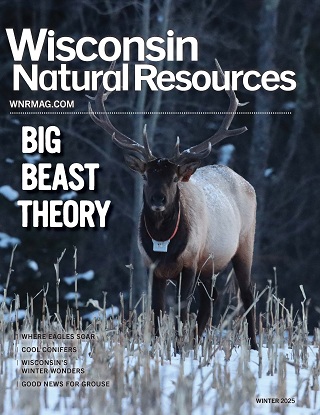Nature and the next generation
EDUCATIONAL PROGRAMMING ASPIRES TO PUT KIDS IN TOUCH WITH THE GREAT OUTDOORS
Katie Johnson
 At Lake Wingra in Madison Science Thursday has become a popular summertime tradition.
At Lake Wingra in Madison Science Thursday has become a popular summertime tradition.© COURTESY OF WINGRA BOATS
It's a warm Thursday evening in June and Lake Wingra — the small Madison lake nestled next to Henry Vilas Zoo and the UW-Madison Arboretum — is clearly a popular destination. The sun, just beginning its nightly descent, casts a golden shimmer on the water as canoes and kayaks glide soundlessly in the distance.
Meanwhile, the atmosphere on the shore is nothing short of festive. Upbeat music emanates from a small radio in the window of the boathouse overlooking the lake. Boats bump and bang as they're hauled in and out of the lake by busy teenaged workers. Lively conversations are in full swing all around.
Gathering just around the corner, beneath the protective shade of a grove of trees, are dozens of parents and their school-aged children. They crowd together, finding seats on logs and weathered benches, switching places and scooting closer to make room for everyone. A soft breeze rustles the canopy overhead and carries the familiar summertime scents of sunscreen and bug spray.
It's Science Thursday at Wingra Boats. And while the weekly sessions are always an exciting affair during the summer months, it's tonight's topic — owls — that has lured this larger-than-usual crowd.
A table is prominently situated in front and features a large and attention-grabbing taxidermied horned owl as well as several samples of intact owl parts — feathery wings and a talon holding a permanent grip. After a few minutes to make sure everyone is listening and to allow for any late-comers, presenter Dawn Liska-Tollefson takes her place in front.
Hands-on because it's 'cool!'
Liska-Tollefson, an elementary and middle school teacher, introduces herself and invites the children to share what they already know about owls. Small hands shoot up around the circle in response. "They're nocturnal," is one answer. "They live in trees," is another.
"What do they sound like?" Liska-Tollefson asks. She pauses, and after a few giggles from her audience and half-hearted imitations, she whips out her smart phone with various owl screeches queued up and ready to go.
The kids are hooked. She passes around the owl wings for good measure, allowing each child to touch the feathers and see them up-close. As she moves through the group, she asks about an owl's diet, and hands are in the air again, waving with barely contained enthusiasm.
"Mice!" "Chipmunks!" "Maybe rabbits?"
"That's what we're going to find out tonight," she says, picking up a small foil-wrapped object about the size of a charcoal briquette.
Then she describes tonight's project: dissecting owl pellets. Or, more graphically, the parts of the meal an owl couldn't digest, regurgitated into a compact little package that can fit in the palm of your hand.
The kids squeal with delight and run to nearby work tables where similar pellets have been set out. They eagerly tear off the foil to take a peek, shrieking and guessing at what they'll see.
Liska-Tollefson hands out plastic tools, bone identification charts and magnifying glasses, and the kids get to work prying apart their pellets to discover what the owl had eaten. Curious parents peer over the childrens' shoulders, cringing ever-so-slightly at the findings.
"Oh, cool! Mom, does this look like a shrew's skull?"
Popular, with a purpose
Studies about unstructured outdoor play and its effects on developing children have arrived at a seemingly unanimous conclusion — kids need it, and most of the time they don't get enough of it. Debi Leeper agrees. A certified elementary school teacher, she started Science Thursday at Wingra Boats seven years ago, when it was an extension of a teacher certification program.
"We held a weekend of science exploration at the boathouse with the teachers taking on the role of students as if they came for a field trip," Leeper recalled. "Their final project was to present a topic of their choice to the community."
The program took off, said Leeper, who lives on Lake Wingra and also directs Camp Wingra on the lake in summer. "It just grew from there."
The programs were so popular they became a regular weekly feature and are now a highly anticipated part of many families' summer schedules. Leeper starts planning the 10-week summer program in February, communicating with a variety of scientists and area educators for months to hammer out details and ensure a good mix of science- and nature-related topics.
Through an annual grant from the Dudgeon-Monroe Neighborhood Association, whose area includes the northwest shores of Lake Wingra and Wingra Boats, Leeper is able to provide a nominal gratuity to each presenter. The grant's funding ensures that Science Thursday events are free to everyone — and also supplies popular miscellaneous items such as snacks and insect repellent for the kids.
DNR reaches out to kids
 The Wisconsin Explorer Program encourages outdoor activities at state parks, forests and other properties.
The Wisconsin Explorer Program encourages outdoor activities at state parks, forests and other properties.© DNR FILES
With the abundance of evidence about the benefits of getting children outdoors, it's no wonder the Department of Natural Resources also is a proponent of such activities.
State park naturalists work to engage youngsters through a variety of year-round programming and the OutWiGo initiative launched in 2018 includes age-appropriate pursuits such as the recent OutWiGo Girls event.
The DNR's MacKenzie Center is a beacon of environmental education. Located on 285 acres near Poynette and open all year, the center includes wildlife exhibits, a museum and interpretive trails. It offers a variety of educational programming for school groups and other visitors as well as special events and summer day camps for kids. Admission is free, with donations always appreciated.
At Horicon Marsh State Wildlife Area in Dodge County, a hands-on Explorium opened in 2015 at the Education and Visitor Center. Open seven days a week, it offers a wealth of kid-friendly exhibits focusing on the history of Horicon Marsh dating back to the Ice Age. A nominal admission fee ($6 adults, $4 children, age 4 and under free) helps to support upkeep and programming.
A sometimes-overlooked educational opportunity can be found at the DNR's fish hatchery facilities. There are 17 hatcheries in the state, rearing a variety of fish species to be stocked each year in the state's rivers and lakes. Tours often are conducted for school groups and others by appointment, and hatcheries have regular visitor hours plus occasional special events. Admission is free.
The Wisconsin Explorer Program is another DNR program that encourages outdoor activity, providing an incentive to kids who participate. The program at state parks, forests and other properties is free and offers booklets with activities children and their families can do together to explore the outdoors. By completing at least half of the guide's suggested explorations as well as a few other tasks, kids can earn a patch to show off their accomplishments.
Beth Mittermaier, a DNR conservation biologist and educator who oversees the statewide Wisconsin Explorer Program, says she could write a book about all the benefits kids get from spending time outdoors. That could mean activities that build bonds with family and friends, she added, or sometimes just playing and exploring by themselves.
"I think kids need to feel a connection to the Earth — to ground them in something that is usually within reach, that is usually fairly cheap to enjoy, that is renewing," said Mittermaier, who also works at Havenwoods, the state's only urban state forest, including a nature center, located in the city of Milwaukee.
"They need time to just 'be' outside," she added. "Not to play soccer or organized sports — but just to be out there."
A variety of traditional outdoor pursuits also are facilitated by the DNR. Activities such as a tackle loaner program and the Free Fishing Weekend each January and June are designed to raise involvement in that pastime, especially among children, and the mentored hunting program works to reach new participants of all ages.
Promoting a lifelong love of outdoor pastimes allows them to be passed down to younger generations, which can be an important part of stewardship efforts.
"I think the world needs kids who grew up loving to be outside," Mittermaier said, "because it is not going to get any easier to take care of this Earth in the years to come."
Katie Johnson is a mom, writer and adventurer in Madison.

